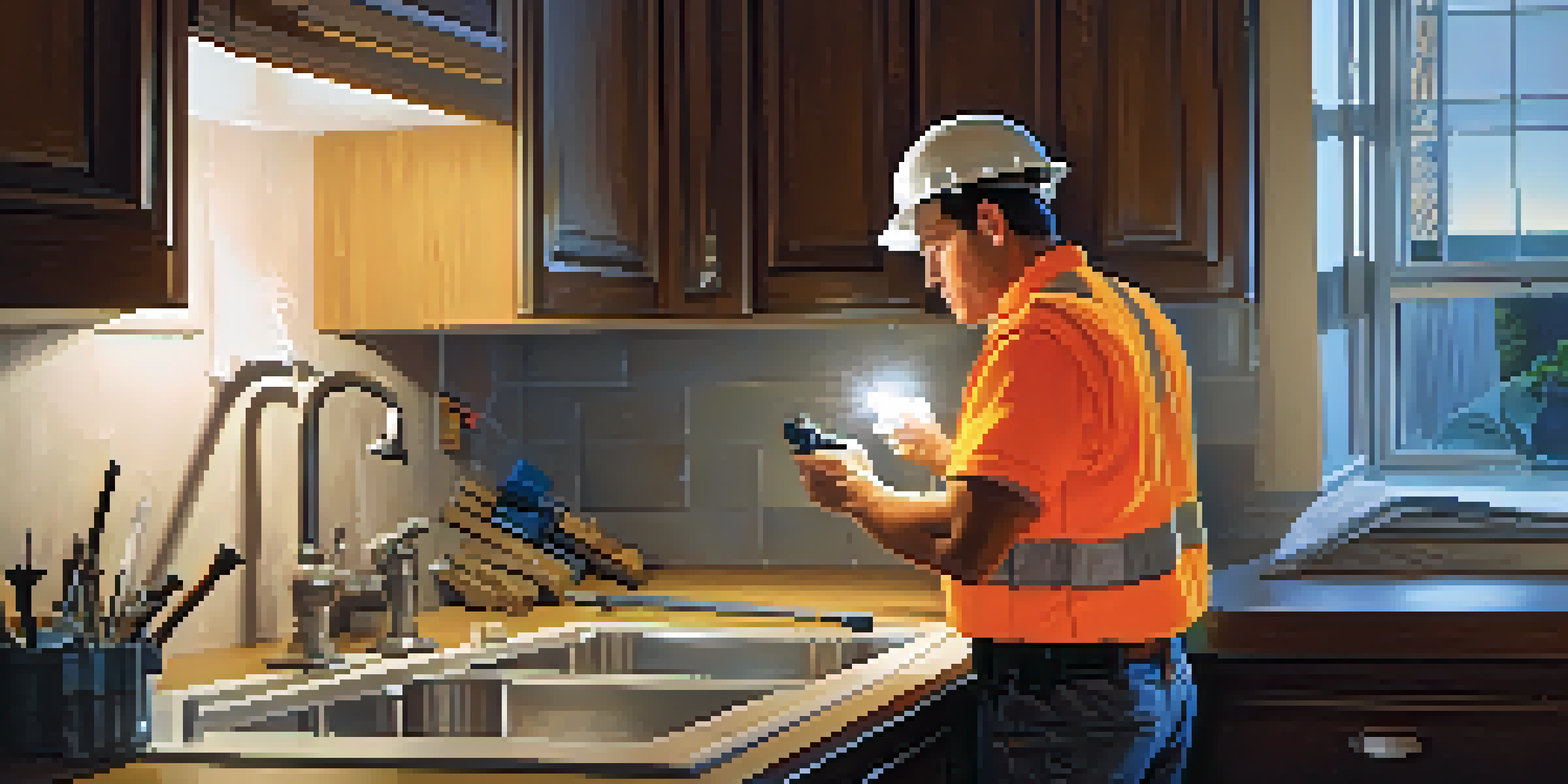The Role of Home Inspectors in New Construction

What is a Home Inspector's Role in New Construction?
Home inspectors play a crucial role in the new construction process, ensuring that everything is built to code and meets safety standards. They are trained professionals who assess the quality of materials and workmanship in newly built homes. Their expertise helps identify potential issues before the home is completed, which can save homeowners from future headaches.
The bitterness of poor quality remains long after the sweetness of low price is forgotten.
In many cases, builders might overlook minor details in the rush to finish a project. A home inspector's job is to provide an objective, third-party assessment, which can be invaluable. This not only protects the homeowner's investment but also enhances the overall quality of the construction.
Ultimately, having a home inspector involved can mean the difference between a house that is simply built and a home that is built right. Their input during the construction phase is essential for ensuring long-lasting quality.
Why New Construction Requires Home Inspections
You might wonder why a new home needs an inspection at all, especially since it's brand new. While new construction often adheres to codes, errors can still occur during the building process. A home inspector helps catch these oversights, ensuring that everything is in order before the final walkthrough.

For instance, issues like improper wiring or plumbing mistakes may not be visible to the untrained eye. A qualified inspector will examine the home thoroughly, from the foundation to the roof, identifying any concerns that could lead to problems down the line. This proactive approach can save homeowners from costly repairs in the future.
Home Inspectors Ensure Quality Builds
Home inspectors play a vital role in new construction by identifying potential issues to ensure that homes are built to code and meet safety standards.
Additionally, a home inspection can provide peace of mind. Knowing that a professional has evaluated your new home can make the transition into your new space much smoother and more enjoyable.
Key Stages for Home Inspectors in New Construction
Home inspectors are involved in various stages of the construction process, typically starting with the pre-drywall inspection. This is when they check the framing, electrical, plumbing, and HVAC systems before the walls are closed up. This early inspection is critical for catching issues before they become hidden problems.
Quality is not an act, it is a habit.
Following this, inspectors often conduct a final inspection once the home is complete. This inspection ensures that all work is up to code and that nothing was missed during the initial phases. If any deficiencies are identified, the builder can address them before the homeowner takes possession.
These staged inspections not only help ensure quality but also foster communication between the builder, inspector, and homeowner. This collaborative approach creates a stronger foundation for a successful home.
Common Issues Home Inspectors Find in New Construction
Despite being newly built, homes can still have a range of issues that a home inspector might uncover. Common problems include improperly installed windows, inadequate insulation, and plumbing leaks. These issues can lead to significant concerns if left unaddressed, such as energy inefficiency or water damage.
Another frequent area of concern is the quality of finishes. Inspectors often check for things like uneven flooring or poorly painted walls, which can detract from the home's overall appeal. Addressing these cosmetic issues early can save homeowners from dissatisfaction later on.
Common New Build Issues Identified
Despite being newly constructed, homes can have issues like improper installations and cosmetic defects that inspectors can help uncover.
Ultimately, uncovering these issues during the inspection phase allows builders to rectify them before the homeowner moves in. This not only enhances customer satisfaction but also reinforces the reputation of builders committed to quality.
The Benefits of Hiring a Qualified Home Inspector
Hiring a qualified home inspector offers numerous benefits for new construction projects. Their experience and expertise provide an extra layer of assurance that your home will meet safety and quality standards. This is particularly important when investing in a new home, as it represents a significant financial commitment.
In addition to peace of mind, a home inspector can help you understand the various systems in your home, from electrical to plumbing. This knowledge empowers homeowners to address maintenance issues proactively and make informed decisions in the future.
Moreover, many home inspectors provide detailed reports that can serve as a valuable resource for homeowners. These reports often include recommendations for upkeep and maintenance, helping you protect your investment for years to come.
How to Choose the Right Home Inspector
Choosing the right home inspector is crucial for ensuring a thorough evaluation of your new construction. Start by looking for inspectors who hold relevant certifications and have experience specifically with new builds. Asking for recommendations from friends, family, or your real estate agent can also lead you to qualified professionals.
It's important to conduct interviews with potential inspectors to gauge their knowledge and approach. You might inquire about their inspection process, what they look for, and how they communicate their findings. This conversation can help you determine if their style aligns with your needs.
Choosing the Right Inspector Matters
Selecting a qualified home inspector with relevant experience is crucial for ensuring a thorough evaluation of your new construction.
Finally, don’t forget to check online reviews and testimonials. A reputable home inspector will have a history of satisfied clients, which can provide further assurance of their capabilities.
The Impact of Home Inspections on Homeowners
The impact of home inspections extends beyond simply identifying issues; they empower homeowners to make informed decisions. When you know the true condition of your new home, you can feel confident in your investment and your choices. This knowledge can also facilitate discussions with builders regarding necessary repairs or adjustments.
Additionally, home inspections can improve the overall quality of new constructions in the community. When builders prioritize quality and safety, it enhances their reputation and leads to better homes for future buyers. This ripple effect ultimately benefits everyone involved.

In the end, a home inspection is not just a box to check off; it's a valuable part of the home-buying process. It fosters trust and transparency between homeowners and builders, leading to a more positive experience for everyone.